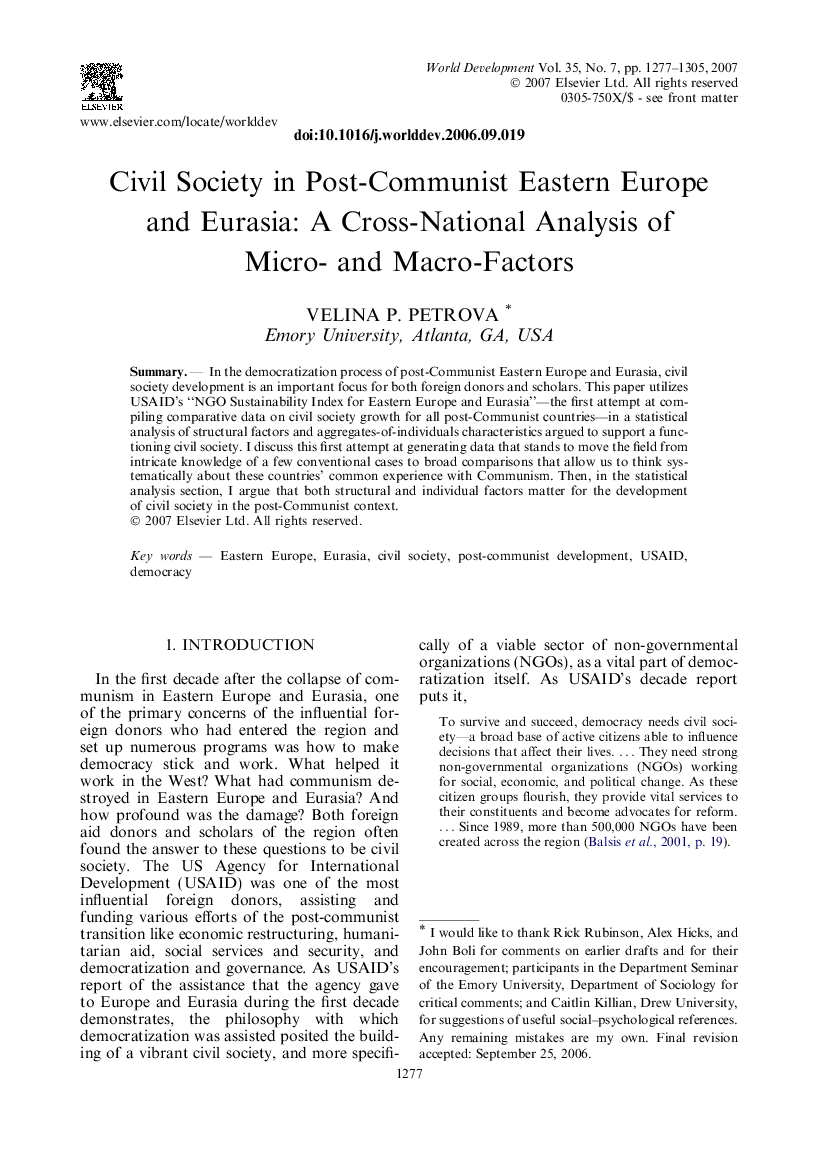| Article ID | Journal | Published Year | Pages | File Type |
|---|---|---|---|---|
| 991240 | World Development | 2007 | 29 Pages |
SummaryIn the democratization process of post-Communist Eastern Europe and Eurasia, civil society development is an important focus for both foreign donors and scholars. This paper utilizes USAID’s “NGO Sustainability Index for Eastern Europe and Eurasia”—the first attempt at compiling comparative data on civil society growth for all post-Communist countries—in a statistical analysis of structural factors and aggregates-of-individuals characteristics argued to support a functioning civil society. I discuss this first attempt at generating data that stands to move the field from intricate knowledge of a few conventional cases to broad comparisons that allow us to think systematically about these countries’ common experience with Communism. Then, in the statistical analysis section, I argue that both structural and individual factors matter for the development of civil society in the post-Communist context.
